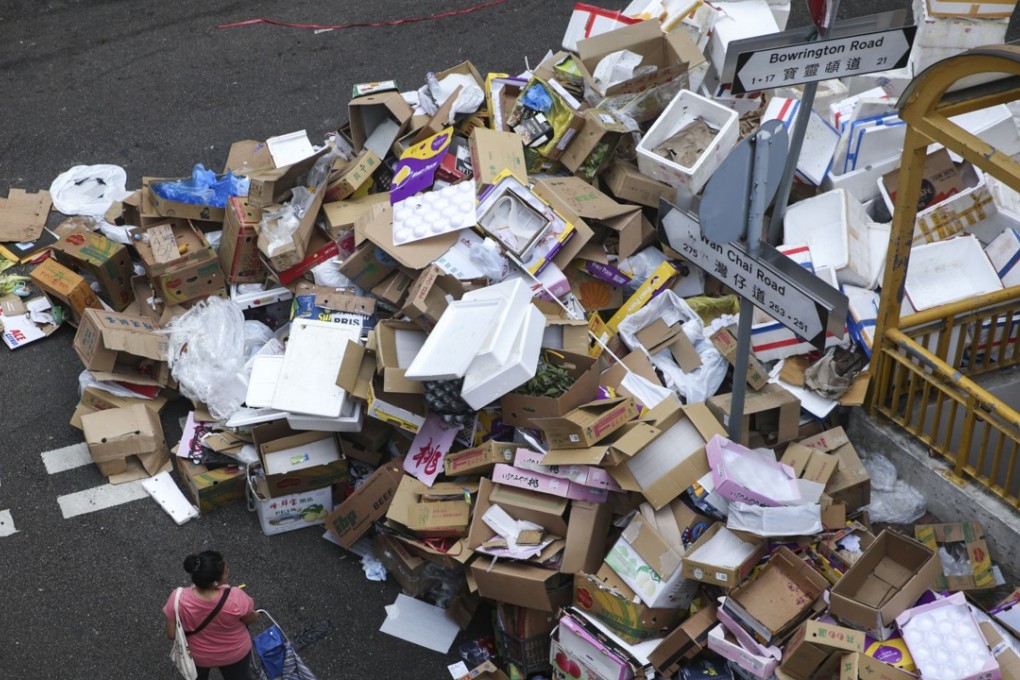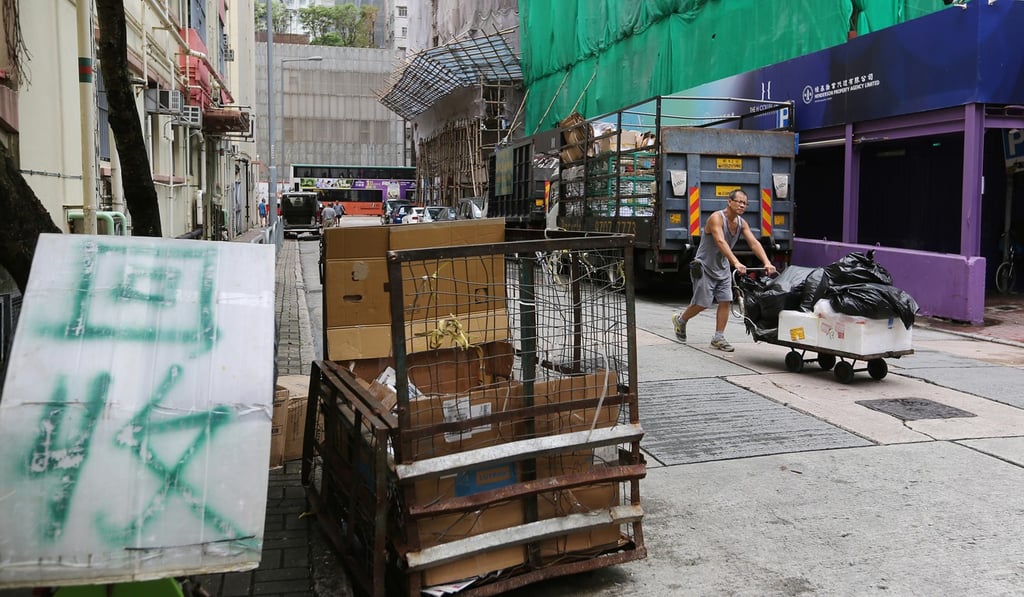Shift in mainland policy could spell disaster for Hong Kong recycling
Calls for the recycling industry in Hong Kong to upgrade after Beijing set to ban 24 types of imported waste by the end of the year

In a dusty scrapyard encircled by mountains of scrap plastic, 11-year-old Yi-Jie dips her hairbrush in a tank of water clumpy with bits of polymer and runs it through her hair. Later she is seen with another woman, scooping plastic with their bare hands into an industrial shredder.
It was Wang Jiuliang’s gripping 2016 documentary, exposing the squalid, unsanitary conditions of substandard recycling yards oft manned by impoverished families, that caught the public and central government’s attention.
After years of trying to clamp down on the trade with tweaks in import regulations, Plastic China may have been the last straw.
“The problem of foreign garbage,” Guo Jian, head of international cooperation at the Chinese Ministry of Environmental Protection told reporters in July, “is loathed by everyone in China.”

In a swift, abrupt change of policy that month, Beijing announced it would ban 24 types of imported waste by the end of the year. These cankers on the country’s environment and public health include waste plastics, unsorted scrap paper, discarded textiles and steelmaking slag.